16 Effective Strategies For Managing Aggressive Horse Behavior
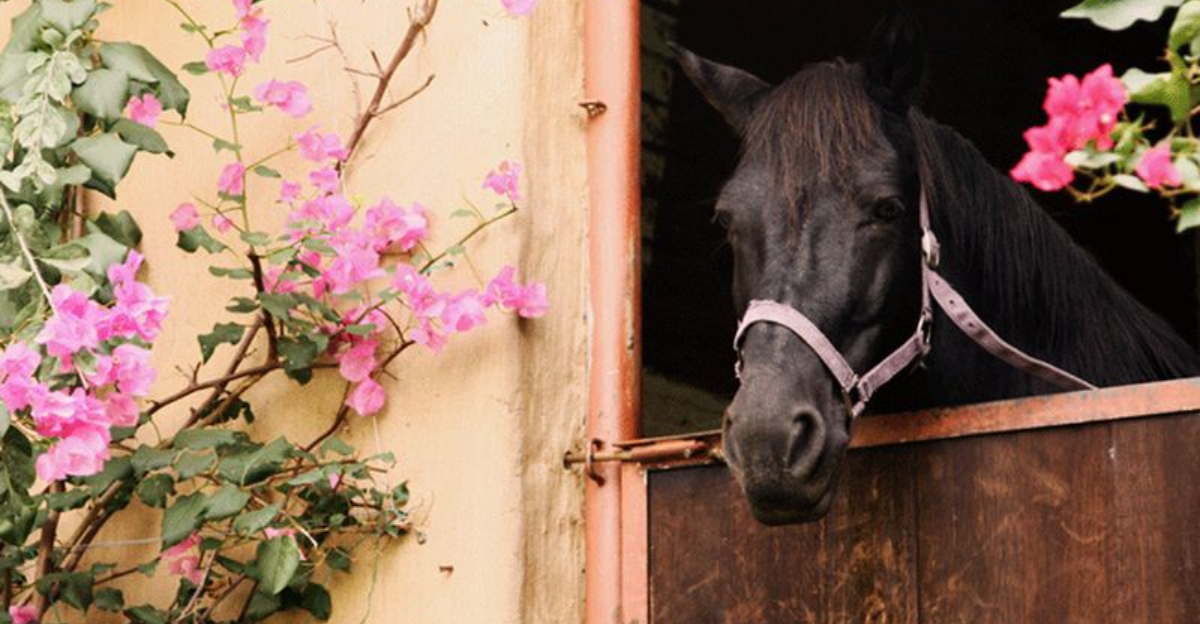
Ever thought your friendly-natured horse could be the secret Houdini of temper tantrums?
Sometimes, beneath that glossy mane and gentle demeanor, lies a creature needing a touch of discipline and understanding.
But fear not! Every horse owner has the potential to transform these behaviors with the right strategies.
1. Understand Their Triggers

Imagine being in a crowded room with loud noises. That’s sometimes how a horse feels with its triggers. By understanding what causes your horse to lash out, you can create a peaceful environment.
Is it the sudden noise at feeding time or the sight of an unfamiliar object? Identifying these triggers is the first step.
Once you know them, you can work on desensitizing your horse to those situations, making for a happier, calmer steed.
2. Consistent Training Routine
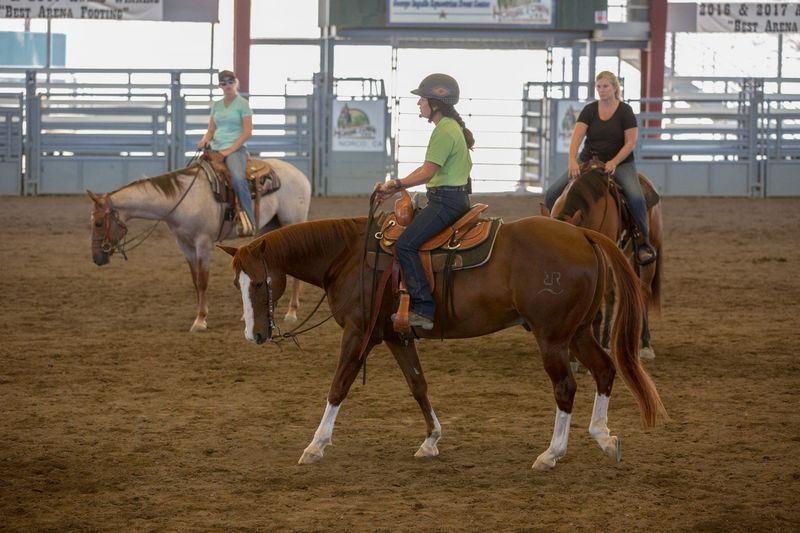
Routine isn’t just for humans who love their morning coffee! Horses thrive on consistency. Establishing a regular training schedule helps your horse know what to expect.
With repetitive exercises, they become less anxious and more relaxed. This familiarity breeds confidence and reduces the likelihood of aggression.
Plus, who doesn’t love to see a well-trained horse prancing around, showing off its skills?
3. Use Positive Reinforcement
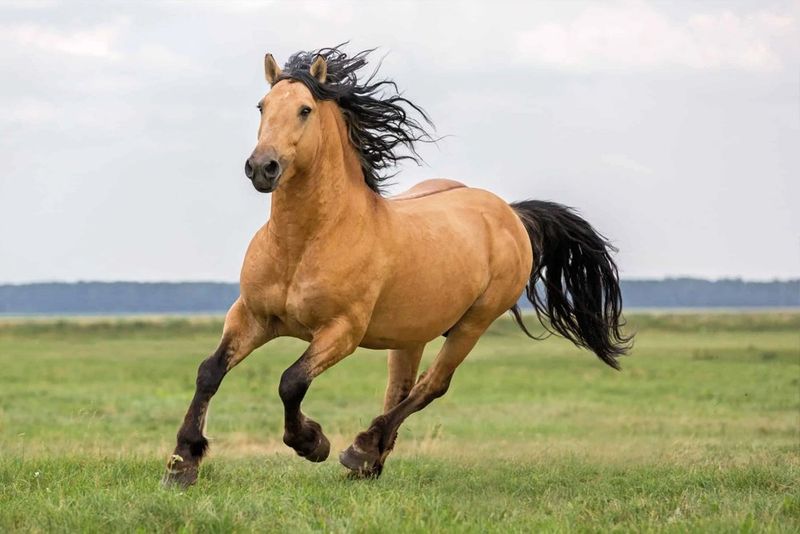
Horses, much like us, respond brilliantly to rewards. Instead of focusing on punishing bad behavior, shower your horse with affection and treats for good behavior.
This positive reinforcement builds trust and encourages your horse to repeat those good behaviors. Treats, a gentle pat, or even a few kind words can make all the difference. So, go on, spoil them a little!
4. Professional Assessment
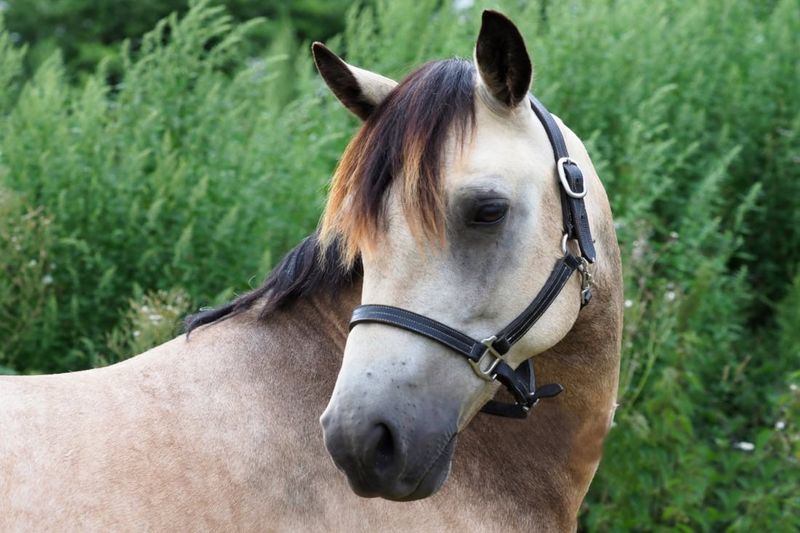
Think of it as a check-up for your horse’s soul. Sometimes, getting a professional to assess your horse’s behavior can provide insights you might have missed.
They can help identify underlying issues, whether it’s health-related or a hidden fear. This professional touch can pave the way for a more tailored approach in handling your horse.
5. Socialize With Other Horses
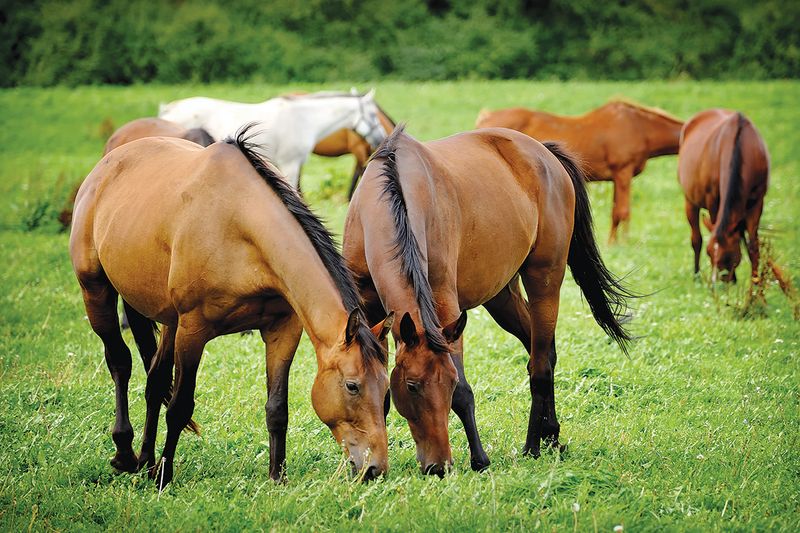
Horses are social creatures, much like that one friend who knows everyone and everything. Allowing them to mingle with other horses helps improve their social skills.
This interaction can reduce aggression caused by loneliness or lack of socialization. In the horse world, hanging out with buddies can teach them the dos and don’ts of equine etiquette.
6. Identify Pain Or Discomfort
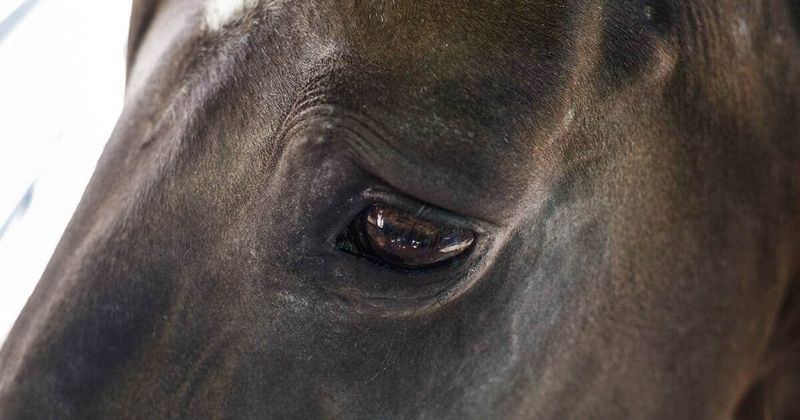
Ever tried being friendly with a headache? Horses can be grumpy too if something’s amiss. If your horse is suddenly aggressive, it might be a sign of pain or discomfort.
A thorough check-up can uncover issues like sore muscles or dental problems. By addressing these health concerns, you’re not only helping relieve their pain but also reducing their aggressive outbursts.
7. Provide Mental Stimulation
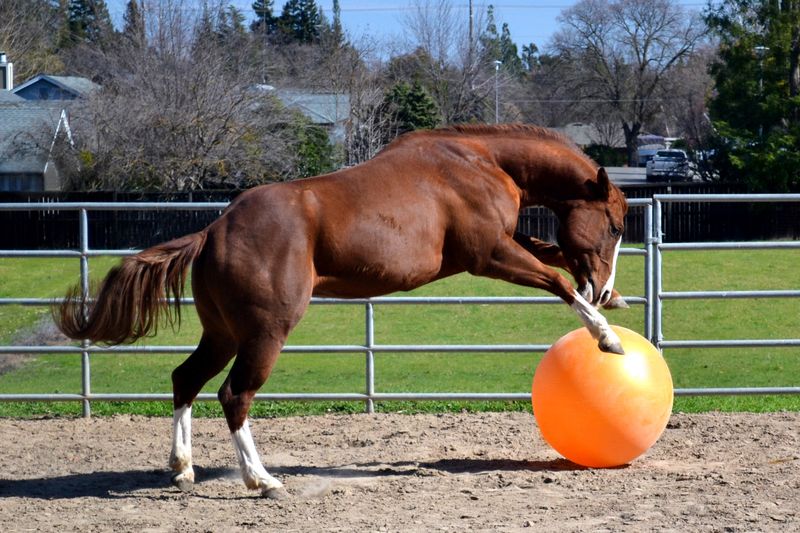
Bored horses can turn into mischievous ones! Keeping their minds active with puzzles and new challenges can work wonders. Think of it as Sudoku for horses.
Provide toys that require problem-solving, or introduce new environments for exploration. This stimulation helps curb boredom-induced aggression, ensuring your horse stays mentally fit and happy.
8. Appropriate Diet And Nutrition
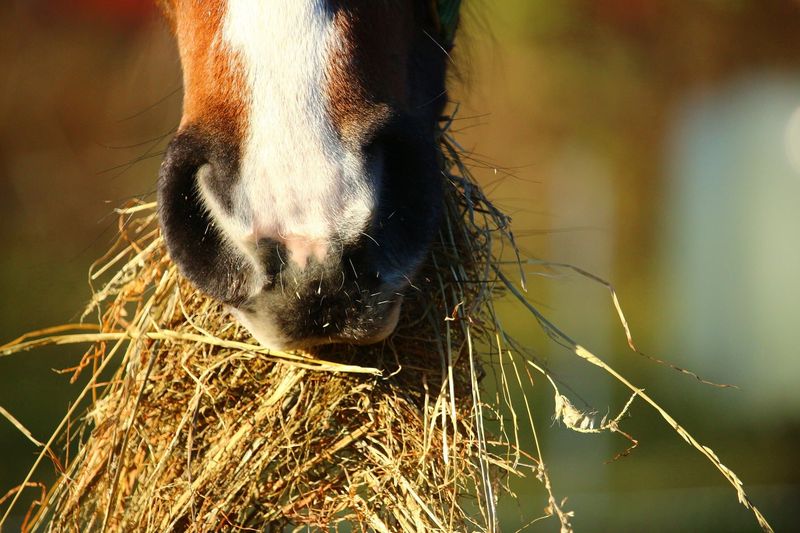
You are what you eat, and that goes for horses too! An imbalanced diet can lead to mood swings and irritability in horses.
Ensuring they receive a balanced diet with the right nutrients can make a world of difference in their behavior.
Consult with a vet to tailor their meals, keeping them fit and fabulous. Remember, a well-fed horse is a content horse!
9. Seek Behaviorist Help
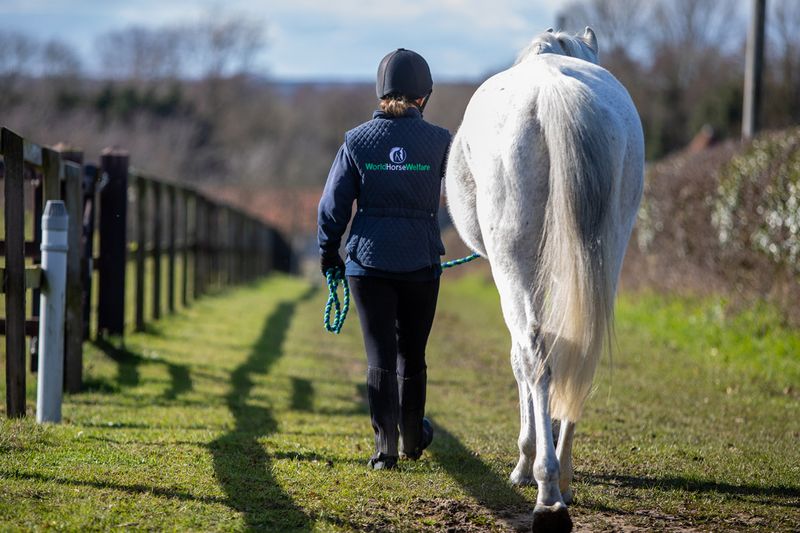
Sometimes, it takes a professional touch to truly understand your horse’s quirks. Horse behaviorists are trained to get to the root of behavioral issues.
They’ll observe and devise strategies specific to your horse’s needs. Think of them as the therapists of the equine world, helping your horse become the best version of itself.
10. Establish Boundaries
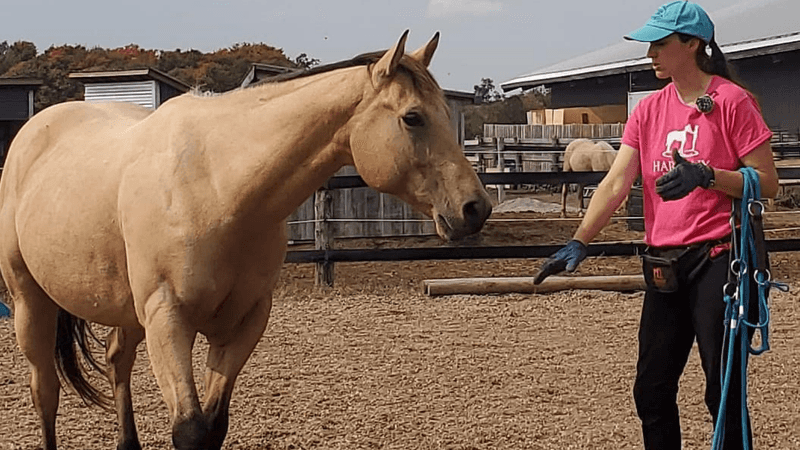
Boundaries aren’t just for nosy neighbors! Horses, too, need to know their limits. By setting clear boundaries, you can foster respect and understanding.
It’s not about being strict; it’s about creating a safe space for both of you. With consistent boundaries, your horse will know what’s expected, reducing the chances of unexpected tantrums.
You’ll have a respectful, well-mannered companion in no time.
11. Gentle Desensitization
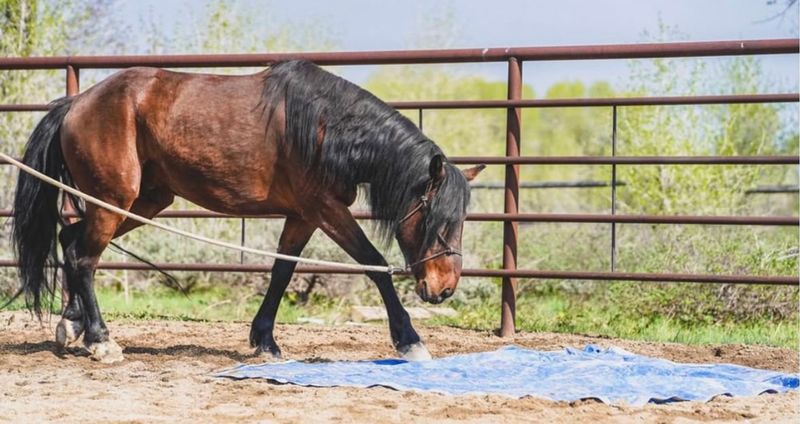
Imagine if your worst fear was suddenly less scary. That’s the power of gentle desensitization! Expose your horse to frightening stimuli gradually, allowing them to get accustomed without the panic.
With time, those once terrifying objects or sounds become just another part of their world. It’s about slowly building confidence and reducing anxiety, one pat and treat at a time.
12. Use Of Calming Aids
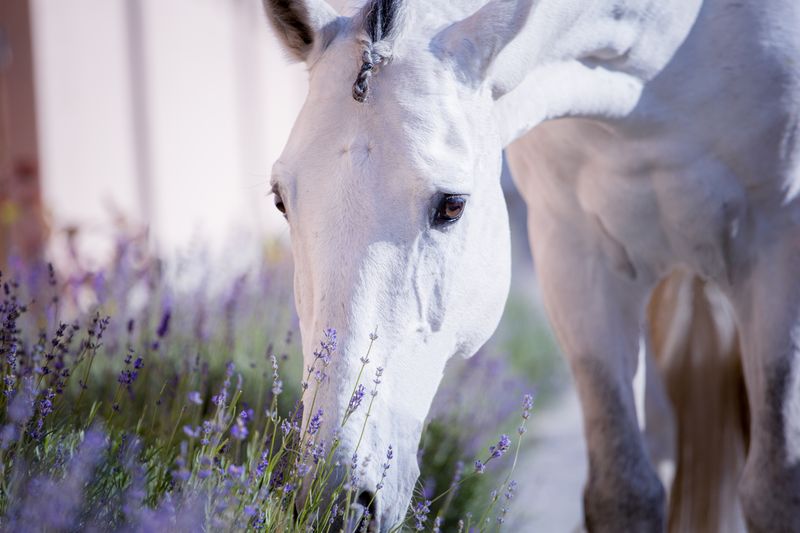
Think of calming aids as the herbal tea for horses. These supplements can help soothe an anxious or aggressive horse, making them more approachable and relaxed.
From calming masks to herbal solutions, there’s a range to explore. While they’re no magic cure, they can aid in managing your horse’s mood. Pair them with other strategies for the best results.
13. Provide Adequate Exercise
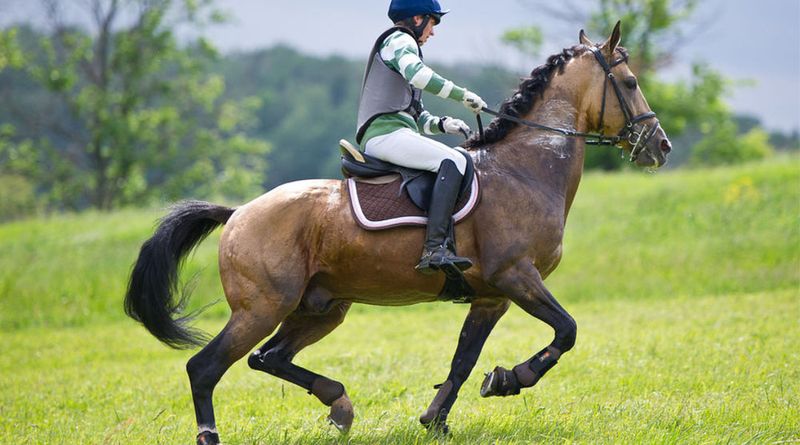
Ever felt grumpy after missing a workout? Horses need their exercise too! Regular physical activity helps burn off excess energy, reducing aggression.
Whether it’s a gallop in the field or a structured riding session, keeping your horse active promotes a healthy body and mind. Plus, watching them run with the wind in their mane is pure joy!
14. Create A Safe Environment
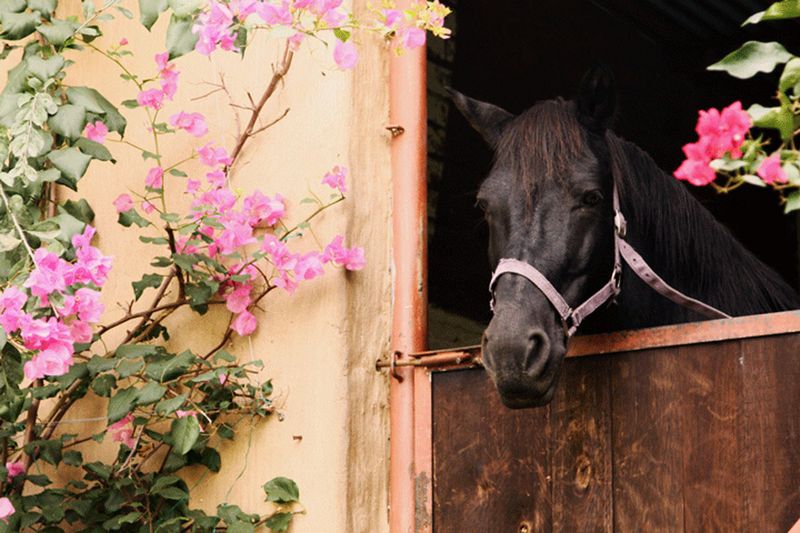
A peaceful environment can do wonders for a horse’s mindset. Remove potential stressors like loud noises or clutter, and create a calming space.
Think of it as a spa day for your horse, helping them unwind and feel secure. A stable that feels like home can drastically reduce aggression, making it a haven for your four-legged friend.
15. Practice Patience
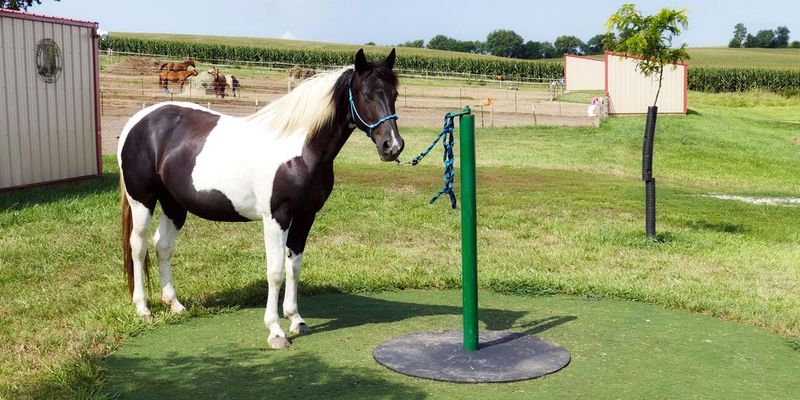
Patience isn’t just a virtue; it’s a necessity with horses. Building trust and understanding takes time and effort. Approach every training session with calmness and perseverance.
Over time, your horse will respond positively, knowing you’re their steady anchor. Remember, slow and steady wins the race, and with patience, you’ll see a transformation in your horse’s behavior.
16. Monitor For Health Changes
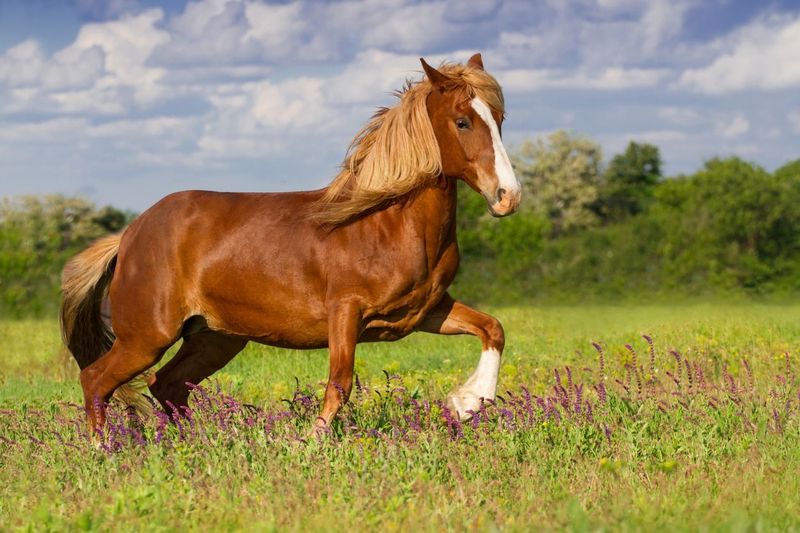
A sudden change in behavior might be your horse’s way of saying something’s wrong. Regular health checks can catch issues early, preventing aggressive behavior caused by discomfort.
Keeping an eye on their health ensures they remain the happy, sprightly creatures we adore. Regular vet visits and attentive care can help prevent surprises, ensuring your horse stays fit and fabulous.






